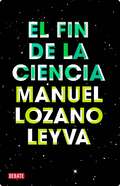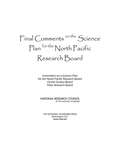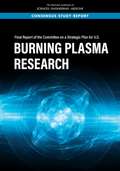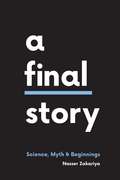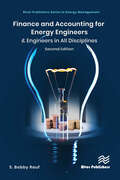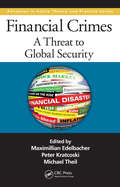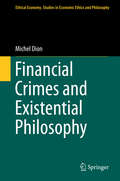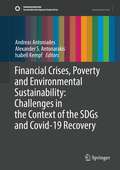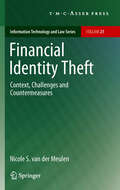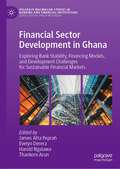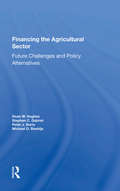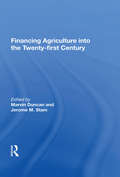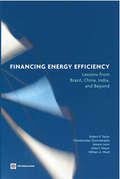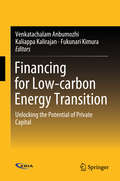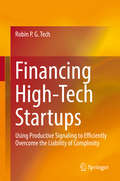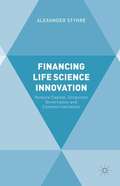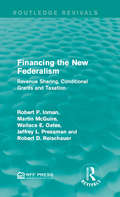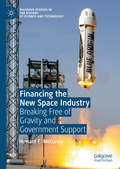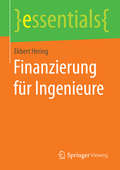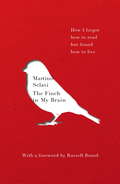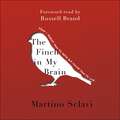- Table View
- List View
Fimbriae Adhesion, Genetics, Biogenesis, and Vaccines
by Per KlemmFimbriae are the best-studied bacterial colonization factors. They are of paramount importance in bacterial pathogenesis and microbial ecology. Due to the advent of new and powerful techniques, an impressive amount of information has been accumulated on these important surface organelles over the last decade. The first book of its kind, Fimbriae brings together into one volume the state of the art of this very active field. Internationally recognized researchers give both a horizontal and lateral approach to fimbriology. Selected types of fimbriae are extensively reviewed and fundamental questions such as evolution, control or regulation, biogenesis, bacteria-host interaction, and fimbriae-based vaccines are examined.
El fin de la ciencia: Todo Lo Que Un Ciudadano Debe Saber Sobre Ciencia Y No Sabe Cómo Preguntar Ni De
by Manuel Lozano LeyvaTodo lo que un ciudadano (que no sabe qué preguntar ni de quién fiarse) debería saber sobre ciencia. El fin de la ciencia responde a una doble pregunta: ¿se puede acabar la ciencia? y ¿qué busca la ciencia? Tras un irreverente recorrido por la historia de la ciencia y la tecnología, el prestigioso científico y gran divulgador Lozano Leyva realiza un ameno e inteligente recorrido por los riesgos y las amenazas actuales, desde la mediocridad y la falta de recursos hasta las pseudociencias o el negacionismo ambiental, para repasar a continuación sus objetivos en los campos más diversos. La idea de partida del libro es que los ciudadanos no pueden ejercer la democracia apropiadamente sin unos conocimientos básicos de lo que es la ciencia y la tecnología, incluidos no sólo sus grandezas y milagros, sino también sus miserias y peligros. La expansión del conocimiento científico y técnico que arrancó en el Renacimiento,tomó impulso en la Ilustración y eclosionó con las grandes y sangrientas convulsiones del siglo XX es un fenómeno único en la historia al que nos tenemos que enfrentar en el siglo XXI. Lo hemos de hacer ilusionados, sí, pero también alertas. Y nuestros políticos saben de esto lo mismo que los ciudadanos: poco o nada. Esclarecer esas ideas, o contribuir a hacerlo, es lo que pretende El fin de la ciencia. «Lo único que quiero con este libro es que cualquier persona tenga una razón más para meter un voto en la urna.»Manuel Lozano Leyva Reseña:«El fin de la ciencia se ocupa, principalmente, de revelar errores de juicio, supercherías notorias y campos donde la ciencia será decisiva en un futuro inmediato: la pesca, la alimentación, el suministro de agua, la prevención y el combate de enfermedades endémicas, etc.»Diario de Sevilla
El fin de la ciencia
by Manuel Lozano LeyvaEl fin de la ciencia es la respuesta a una doble pregunta: ¿se puede acabar la ciencia? y ¿qué busca la ciencia? Tras un irreverente recorrido por la historia de la ciencia y la tecnología, el prestigioso científico y gran divulgador Lozano Leyva realiza un ameno e inteligente recorrido por los riesgos y amenazas actuales, desde la mediocridad y la falta de recursos hasta las pseudo ciencias o el negacionismo ambiental, para a continuación repasar sus objetivos en los campos más diversos. Porque la idea de partida del libro es que los ciudadanos no pueden ejercer la democracia apropiadamente sin unos conocimientos básicos de lo que es la ciencia y la tecnología, incluidos no sólo sus grandezas y milagros sino también sus miserias y peligros. La expansión del conocimiento científico y técnico que arrancó en el Renacimiento, tomó impulso en la Ilustración y eclosionó con las grandes y sangrientas convulsiones del siglo XX es un fenómeno único en la historia al que nos tenemos que enfrentar en el siglo XXI. Lo hemos de hacer ilusionados, sí, pero también alertas. Y nuestros políticos saben de esto lo mismo que los ciudadanos: poco o nada. Esclarecer esas ideas, o contribuir a hacerlo, es lo que pretende El fin de la ciencia.
Final Comments on the Science Plan for the North Pacific Research Board
by National Research Council of the National AcademiesThe North Pacific Research Board (NPRB) was established by Congress in 1997 to recommend marine research activities to the Secretary of Commerce on or relating to the fisheries or marine ecosystem in the North Pacific Ocean, Bering Sea, Arctic Ocean, and related bodies of water. NPRB called on the National Academies to develop a comprehensive long range science plan pertaining to its research activities. This assistance has been provided in two phases. In phase one, beginning in early 2003, a National Academies committee worked to understand the purpose of the NPRB, gather information to help identify research needs, and provide advice on the components of a sound science plan. The committee's assessment is contained in a report released in early 2004, Elements of a Science Plan for the North Pacific Research Board. With this guidance as a tool, the NPRB staff, Science Panel, and Advisory Panel worked together to write a draft science plan to steer the program in the coming decade. During the second phase, the same committee reviewed the NPRB's draft science plan and provided final feedback to the NPRB. It is a focused review, generally following the organization of the NPRB document. This report is intended primarily as a direct communication from the committee to those planning the NPRB's programs, to help them improve the science plan and ensure successful implementation.
Final Report of the Committee on a Strategic Plan for U.S. Burning Plasma Research
by National Academies of Sciences Engineering MedicineFusion offers the prospect of virtually unlimited energy. The United States and many nations around the world have made enormous progress toward achieving fusion energy. With ITER scheduled to go online within a decade and demonstrate controlled fusion ten years later, now is the right time for the United States to develop plans to benefit from its investment in burning plasma research and take steps to develop fusion electricity for the nation’s future energy needs. At the request of the Department of Energy, the National Academies of Sciences, Engineering, and Medicine organized a committee to develop a strategic plan for U.S. fusion research. The final report’s two main recommendations are: (1) The United States should remain an ITER partner as the most cost-effective way to gain experience with a burning plasma at the scale of a power plant. (2) The United States should start a national program of accompanying research and technology leading to the construction of a compact pilot plant that produces electricity from fusion at the lowest possible capital cost.
A Final Story: Science, Myth, and Beginnings
by Nasser ZakariyaPopular science readers embrace epics—the sweeping stories that claim to tell the history of all the universe, from the cosmological to the biological to the social. And the appeal is understandable: in writing these works, authors such as E. O. Wilson or Steven Weinberg deliberately seek to move beyond particular disciplines, to create a compelling story weaving together natural historical events, scientific endeavor, human discovery, and contemporary existential concerns. In A Final Story, Nasser Zakariya delves into the origins and ambitions of these scientific epics, from the nineteenth century to the present, to see what they reveal about the relationship between storytelling, integrated scientific knowledge, and historical method. While seeking to transcend the perspectives of their own eras, the authors of the epics and the debates surrounding them are embedded in political and social struggles of their own times, struggles to which the epics in turn respond. In attempts to narrate an approach to a final, true account, these synthesizing efforts shape and orient scientific developments old and new. By looking closely at the composition of science epics and the related genres developed along with them, we are able to view the historical narrative of science as a form of knowledge itself, one that discloses much about the development of our understanding of and relationship to science over time.
Finance and Accounting for Energy Engineers: & Engineers in All Disciplines (River Publishers Series in Energy Management)
by S. Bobby RaufThe purpose of this second edition is to provide an overview of important principles in the fields of finance and accounting, and the application of those principles for financial analysis of energy and non-energy capital investments. This book is written as a self-study guide for energy and non-energy engineers and managers who either lack formal training in the subjects of finance, accounting, and engineering economics, or simply need a means to refresh their knowledge in these subjects. This book bridges the gap between the typical business school "MBA" knowledge and its application in enery and non-engergy engineering, project management or manufacturing management. Many energy and non-energy engineers and technical managers feel inadequately equipped to comprehend and apply certain important finance and accounting principles. Understanding of finance and accounting principles is important in interfacing and conducting business with accountants, financial analysts, and members of upper management. This book is designed to familiarize energy engineers and other engineering professionals - in a relatively simple and easy to understand fashion - with decision making skills founded on financial calculations and case study based quantitative analysis.
Financial Crimes: A Threat to Global Security (Advances in Police Theory and Practice)
by Maximillian Edelbacher Peter Kratcoski Michael TheilFinancial market reform has focused chiefly on the threats to stability arising from the risky, uncontrolled activity of the leaders of financial institutions. Nevertheless, organized crime, white-collar crime, and corruption have a huge impact on financial systems worldwide and must also be confronted if true reform is to be achieved. A collection
Financial Crimes: A Threat to Global Security
by Maximillian Edelbacher, Peter Kratcoski and Michael TheilFinancial market reform has focused chiefly on the threats to stability arising from the risky, uncontrolled activity of the leaders of financial institutions. Nevertheless, organized crime, white-collar crime, and corruption have a huge impact on financial systems worldwide and must also be confronted if true reform is to be achieved. A collection
Financial Crimes and Existential Philosophy
by Michel DionThe aim of this book is to deepen our understanding of financial crimes as phenomena. It uses concepts of existential philosophies that are relevant to dissecting the phenomenon of financial crimes. With the help of these concepts, the book makes clear what the impact of financial crimes is on the way a human being defines himself or the way he focuses on a given notion of humankind. The book unveils how the growth of financial crimes has contributed to the increase of the anthropological gap, and how the phenomenon of financial crimes now distorts the way we understand humankind. Using the existential philosophies of Kierkegaard, Nietzsche, Jaspers, Buber, Heidegger, and Marcel, the book sheds light on how these philosophies can help to better perceive and describe financial crimes. Next it looks at prevention strategies from an organizational perspective, using concepts of Sartre, Gadamer and Tillich. The book provides readers with existential principles that will help them be more efficient when they have to design and implement prevention strategies against corporate crime.
Financial Crises, Poverty and Environmental Sustainability: Challenges in the Context of the SDGs and Covid-19 Recovery (Sustainable Development Goals Series)
by Andreas Antoniades Alexander S. Antonarakis Isabell KempfThis volume advances the state-of-the-art in the study of the interplay among financial crises, poverty dynamics and environmental sustainability. It offers timely and unique contributions to the immediate global challenge of sustainable development. Developing a new evidence-base, the volume offers concrete recommendations for policy action needed in advancing the Sustainable Development Goals (SDGs) in relation to environment and poverty during the current conditions of financial distress. The approach taken is inductive and evidence-driven. Most analysis is based on in-depth case studies that aim to offer a detailed and dynamic picture on how poverty and environmental sustainability interact in specific social contexts and financial crises. In this way the volume aims to generate a wealth of new and concrete evidence that offer a solid foundation to understand the multiple channels through which social and environmental factors interact, and the ways in which this interaction can and should be managed in order to achieve the needed global transition to sustainability. Broader dynamics that are covered and analysed include the historical legacies of structural adjustment and colonialism; the current debt wave experienced in developing countries; the role of inequality; the significant impact that climate change has on livelihoods and on meeting the SDGs; the new challenge presented by the Covid-19 pandemic for the SDGs; the challenge of sustainable funding for SDGs; and the need for a new eco-social contract. Case-studies examined include Cambodia, Ethiopia, India, Indonesia, Zambia, and subregions such as the Caribbean, sub-Saharan Africa and Lower Mekong Countries. The volume is part of a joint initiative by the ‘Sussex Sustainability Research Programme (SSRP)’ of the University of Sussex, the ‘UNDP-UNEP Poverty-Environment Action for Sustainable Development Goals’ and the ‘United Nations Research Institute for Social Development (UNRISD)’. The overall aim is to advance a new research programme and foster a better understanding of the multiple, complex and often opposing ways through which the punctuated economic slowdown of financial crises, poverty dynamics and environmental sustainability interact. It also makes novel recommendations into how poverty reduction and environment can work in synergy rather than being antagonistic, especially during financial distress, leading into recommendations directly geared towards achieving the SDGs and beyond.
Financial Identity Theft
by Nicole S. van der MeulenThe existence of financial identity theft in the United States, and its (gradual) spread to other areas of the world, increases the need to understand how identity theft occurs and how perpetrators of the crime manage to take advantage of developments within contemporary society. This book aims to provide such an understanding through an in-depth comparative analysis which illustrates how states, financial service providers, consumers, and others facilitate the occurrence of financial identity theft in the United States and the Netherlands.
Financial Sector Development in Ghana: Exploring Bank Stability, Financing Models, and Development Challenges for Sustainable Financial Markets (Palgrave Macmillan Studies in Banking and Financial Institutions)
by James Atta Peprah Evelyn Derera Harold Ngalawa Thankom ArunThis book investigates factors that contribute to the development of an efficient financial sector in Ghana. While sustainable finance has long been known to propel economic growth and development, and while many African countries have taken initiatives to develop integrated frameworks of their financial sectors that tackle developmental challenges, scholars and policymakers have always grappled with understanding of factors that enhance performance of the financial sector. In this book, an expert team of authors examines the financial landscape, central bank policies, competition, financial innovation, financial inclusion and banking stability in Ghana, while also exploring how financing models such as enterprise finance and microfinance can be more effective in sustaining financial markets. The authors discuss how Ghana can build fortified institutions, regulatory frameworks, and productive capacity to strengthen the financial sector and foster pathways that will enhance economic development. Empirical and scientific evidence give this book a unique approach that is both qualitative and quantitative.
Financing The Agricultural Sector: Future Challenges And Policy Alternatives
by Dean W. HughesFarm credit and tax policies have become increasingly important areas of concern for policymakers and agriculturists. Rising levels of debt use among the nation's commercial producers, rising interest rates, and an increased dependence on international commodity markets have contributed to greater income volatility at the farm level, making financi
Financing Agriculture Into The Twenty-first Century
by Marvin DuncanThis volume is concerned with the paradigm shifts occurring in U.S. agriculture and its related financial services sector. The U.S. agricultural sector is undergoing rapid change with large segments commonly described as industrialized. Often observers focus on the technological and structural changes that the sector is undergoing and ignore other
Financing Energy Efficiency: Lessons from Brazil, China, India, and Beyond
by Jeremy Levin Chandrasekar Govindarajalu Anke S. Meyer Robert P. Taylor William A. WardWhile energy efficiency projects could partly meet new energy demand more cheaply than new supplies, weak economic institutions in developing and transitional economies impede developing and financing energy efficiency retrofits. This book analyzes these difficulties, suggests a 3-part model for projectizing and financing energy efficiency retrofits, and presents thirteen case studies to illustrate the issues and principles involved.
Financing for Low-carbon Energy Transition: Unlocking the Potential of Private Capital
by Venkatachalam Anbumozhi Kaliappa Kalirajan Fukunari KimuraThis book is the first comprehensive assessment of the state of low-carbon investments in Asia, analyzing the rationales, mandates and public–private financing activities. Based on the experiences of several regional initiatives wherein public financing is catalyzing private investments in low-carbon infrastructure, this book proposes a framework that can be used as a tool to identify factors that influence private investment decisions and policy instruments that can scale up the private capital.Placing the Asian economies onto a low-carbon development pathway requires an unprecedented shift in investments. This book addresses this situation by asking questions such as: • What is the central role of private finance in achieving the Paris Agreement targets? • What key policy levers and risk mitigation can governments use in an effort to unlock the potentials of private capital? • How can regionally coordinated actions hold significant promise for scaling up private investments?
Financing High-Tech Startups: Using Productive Signaling To Efficiently Overcome The Liability Of Complexity
by Robin P. TechThis book examines the adverse effects of complexity, information asymmetries, transaction costs, and uncertainty on investors’ decision making. It suggests mitigating those effects using appropriate and matching signals, and analyzes a sample of 903 German startups to quantitatively highlight the distinct financing patterns and characteristics of high-tech startups. It then investigates the reasons for these patterns on the basis of a qualitative study that includes 34 interviews with investors and entrepreneurs in the US and Germany and an international expert panel. Lastly, it presents a framework that matches complexity factors with appropriate productive signals.
Financing Life Science Innovation
by Alexander StyhreThe life sciences are widely treated as a field and an industry with high-growth potential, and while neoclassical economic theory prescribes that capital are invested in emerging industries, there is a perceived shortage of venture capital among life science entrepreneurs. Financing Life Science Innovation reviews the literature on venture capital, corporate governance, and life science venturing and presents a study of the Swedish life science industry and the venture capital investors being active in financially and managerially supporting life science start-up firms. The study reveals that venture capital investors, life science entrepreneurs, and innovation system actors today face the challenge of supplying adequate amounts of capital to an industry that may produce tomorrow's health care innovations. Changes in scientific research practices, the structure of the international finance market, and industry policy are all contributing to what is frequently treated as a shortage of venture capital in the life sciences.
Financing Sustainable Development: Key Challenges and Prospects (Palgrave Studies in Impact Finance)
by Bruno S. Sergi Magdalena ZioloThis book is among the first to address the issue of assessing the efficiency of sustainable development financing from a theoretical and methodical point of view. The innovative nature of research is expressed through the study of new phenomena in finance including sustainable financial systems, sustainable finance, ESG risk and individual and institutional motivations of financial managers in the sustainability concept. The book aims to draw attention to the significant gap in the existing research.The concept of Sustainable Development, if placed in an economic category, requires a lot of attention, but seeing the cognitive category from the perspective of the discipline of finance, the latter is unsatisfactory, with questions remaining unanswered. At the same time, the rank problem, its strategic dimension and the amount of financial resources allocated and disbursed for the purposes of focusing around sustainable development, identification of financial phenomena accompanying this category is seen as a priority. Most measures financing Sustainable Development and measures of public spending efficiency are measures subject to rigor and rules due to their specificity, which means actions aimed at increasing efficiency are treated as a priority. This book will be of interest to leading representatives of academia, practitioners, executives, officials, and graduate students in economics, finance, management, statistics, law and political sciences.
Financing the New Federalism: Revenue Sharing, Conditional Grants and Taxation (Routledge Revivals)
by Jeffrey L. Pressman Wallace E. Oates Robert P. Inman Martin McGuire Robert D. ReischauerFinancing the New Federalism is the fifth in a series on the governance of metropolitan areas which aimed to improve the political organisation of metropolitan regions in America. Originally published in 1975, this particular study focusses on federal revenue sharing exploring its effects and implications with the purpose of providing a breadth of views on the subject for policy-makers. This title will be of interest to students of environmental studies.
Financing the New Space Industry: Breaking Free of Gravity and Government Support (Palgrave Studies in the History of Science and Technology)
by Howard E. McCurdyThis Palgrave Pivot investigates the efforts of five aerospace companies—SpaceX, Blue Origin, Virgin Galactic, Orbital Sciences, and the Boeing Company—to launch their entry into the field of commercial space transportation. Can private sector firms raise enough capital to end the usual dependence on government funding? What can historical examples of other large-scale transportation initiatives, such as the first transcontinental railway and the first commercial jetliner, teach us about the prospects of commercial space flight? As Howard E. McCurdy shows, commercializing space is a great experiment, the outcome of which will depend on whether new space entrepreneurs can attract support from a variety of traditional and nontraditional sources.
Finanzierung für Ingenieure (essentials)
by Ekbert HeringDie meisten Ingenieure in der Praxis werden vor Finanzierungsaufgaben gestellt und müssen hierfür die optimalen Finanzierungsmöglichkeiten bereitstellen. Deshalb werden in diesem Band die Finanzierungsarten und die Finanzierungsinstrumente vorgestellt. Es wird gezeigt, welche wichtigen Informationen eine Finanzanalyse bieten kann und wie eine Finanzplanung für ein Unternehmen erstellt wird.
The Finch in My Brain: How I forgot how to read but found how to live
by Martino Sclavi'Whenever I see Martino I am reminded of how little I know about life and death compared to him. How we don't know what is within us or what may lie on the other side. I hope it's as magical and beautiful as this book.' --Russell BrandWhen film producer Martino Sclavi began experiencing intense headaches, he attributed them to his frenetic lifestyle. As it turned out, he had grade 4 brain cancer and was given 18 months to live. After undergoing brain surgery - while awake - Martino found he had lost the ability to recognise words. His response was to close his eyes and begin to move his fingers across the keyboard to write this, an account of life before diagnosis and since. Defying all predictions Martino is still very much alive, words read out to him by the monotone of a computerised voice he calls Alex. But he must now live in a new way. This book - that he has written but cannot read - charts the effects of his experience: on his relationship with his young son, his marriage, his work and with himself. In the wake of his illness, everything must be reconfigured and Martino is made to question the habits, dreams and beliefs of his old life and confront the present. What he finds is strange and beautiful. Searching for the words between life and death, Sclavi shows that with determination and a subtle, persistent sense of humour, it is possible to change the story of our lives.
The Finch in My Brain: How I forgot how to read but found how to live
by Martino Sclavi'It's eerily joyful to write a foreword for Martino Sclavi's book because five years ago I accepted that he was going to die.' Russell Brand. Diagnosed with fatal brain cancer, the treatment that follows renders the writer of this extraordinary memoir unable to recognise words. This is the inspiring story he can no longer read. With a foreword by Russell Brand.This is the story of a successful Italian-born, London-based film writer who is suddenly, wholly unexpectedly diagnosed with stage four brain cancer. The prognosis is bad: there's a 98% likelihood he'll be dead within 18 months. He undergoes two operations, including one in which he must remain awake throughout. Part of his brain is removed, the part that enables us to recognise written words - to read. As someone who relies on words for their livelihood, their very identity, this presents impossible questions as to what happens next. Defying all predictions, Martino is still very much alive five years on, and is writing and being read to by a monotonous computerised voice he calls Alex. His marriage suffered, his relationship with his young son - whom he will never read bedtime stories to again - must be reconfigured and he is made to question all that his previous life gave him, along with his habits, dreams and beliefs.As Sclavi faces the reality of the narrative he's been presented by doctors, he shows us that with determination, it is possible to change that narrative, and in doing so inspires and empowers us all to believe that it is possible to change the story of our lives.'Whenever I see Martino I am reminded of how little I know about life and death compared to him. How we don't know what is within us or what may life on the other side. I hope it's as magical and beautiful as this book.'Russell Brand.(P)2017 Hodder & Stoughton Limited


